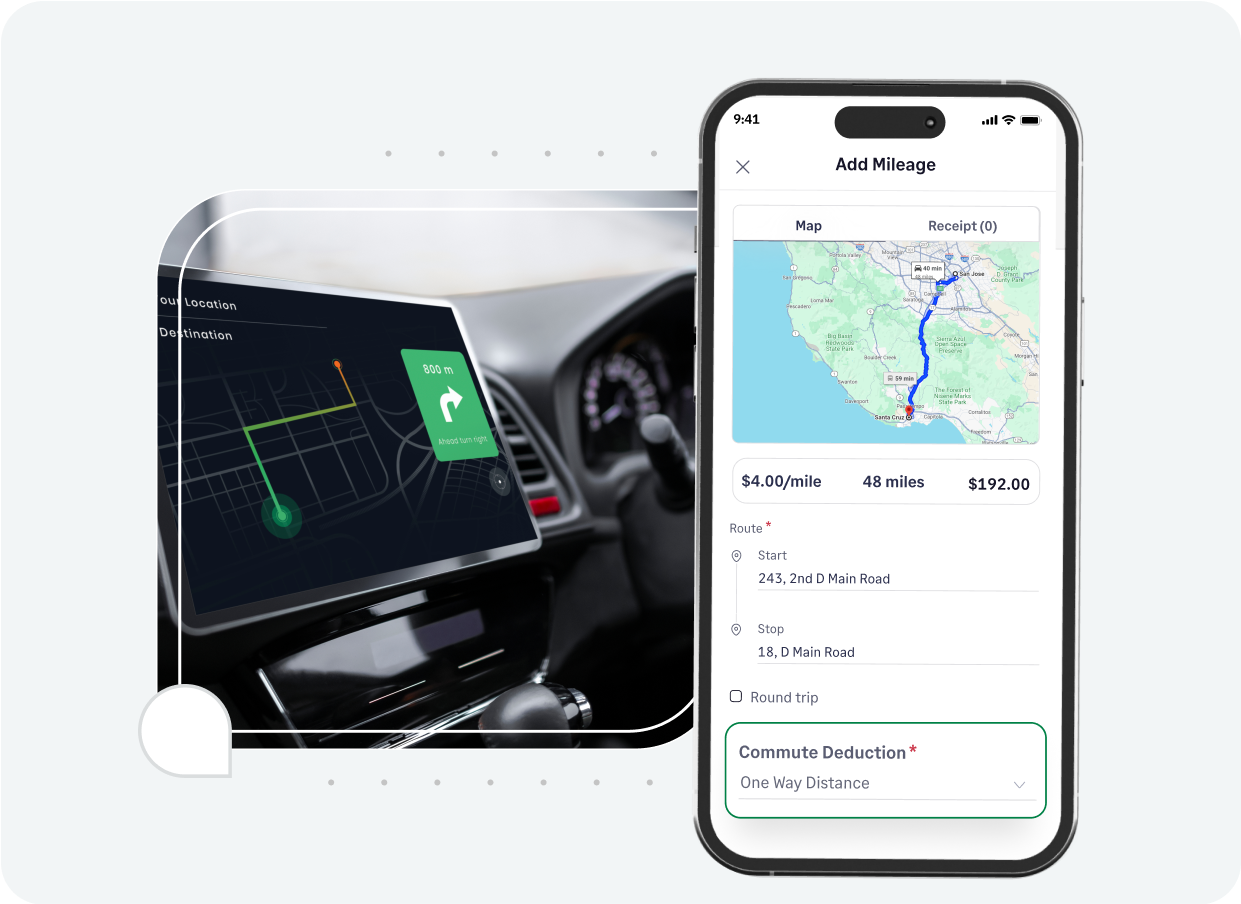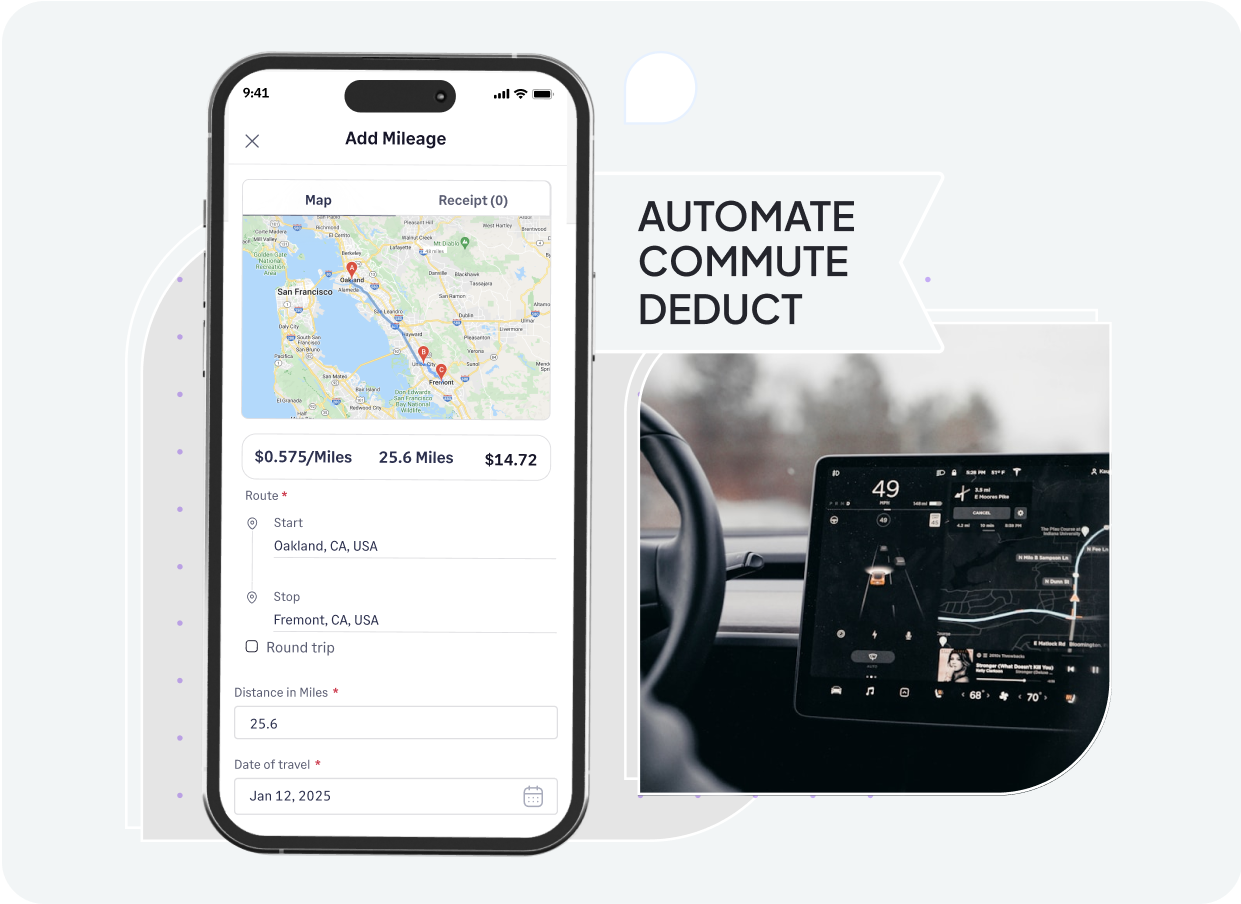For those conducting business in West Virginia, understanding the nuances of mileage reimbursement is a practical aspect of financial management and employee compensation.
While West Virginia aligns its public sector and workers' compensation travel reimbursement with established federal rates, private businesses must also consider these alongside West Virginia's own minimum wage laws.
The most common benchmark used nationally for calculating these travel expenses is the standard mileage rate issued by the Internal Revenue Service (IRS). For the calendar year 2025, the IRS has set this rate for business use of a personal vehicle at 70 cents per mile. This is an increase from the 67 cents per mile rate that was effective for 2024.
In West Virginia, private sector employers are not specifically required by state law to adopt this IRS rate for all general business-related travel. Nevertheless, many businesses choose to use this federal standard for its clarity and practicality:
- It provides a consistent and widely accepted basis for calculating reimbursements.
- When reimbursements are handled through an accountable plan at or below the IRS rate, they are generally not treated as taxable income for the employee and can be claimed as a business expense deduction by the employer.
As of January 1, 2025, the key IRS standard mileage rates are:
- 70 cents per mile for business use of a vehicle.
- 21 cents per mile for medical or moving purposes (note: the deduction for moving expenses is currently limited to active-duty members of the U.S. Armed Forces).
- 14 cents per mile driven in service of charitable organizations.
Other relevant rates in West Virginia include:
- West Virginia State Employee Rate: The State of West Virginia, through its Travel Management Office, typically aligns its mileage reimbursement rate for state employees using personal vehicles for official business with the current IRS standard rate. Thus, for 2025, this rate is 70 cents per mile (it was 67 cents per mile in 2024).
- Workers' Compensation Medical Travel: Injured employees in West Virginia are entitled to reimbursement for reasonable travel expenses, including mileage, for medical examinations related to their claims, as per West Virginia Code §23-4-8(d). This rate is the same as that authorized for state employees, meaning it is 70 cents per mile for 2025.
For historical context, here are the IRS standard business mileage rates from recent years:
West Virginia Mileage Reimbursement Calculator
Quickly estimate your mileage reimbursement with our West Virginia Mileage Reimbursement Calculator.
How to Use the Calculator:
- Select the correct tax year: Choose the year for your calculation (e.g., 2025, 2024), as IRS rates can be updated annually.
- Input your business miles: Enter the total miles driven for business purposes using your personal vehicle.
- Calculate your reimbursement: The calculator will apply the official IRS standard mileage rate for the chosen year to provide your estimated reimbursement.
This tool offers a straightforward estimate based on federal standard rates, useful for managing travel expenses in West Virginia.
Calculate
Results
Some Important West Virginia Mileage Reimbursement Laws
While West Virginia does not have a specific statute mandating mileage reimbursement for all private employers for general business use, several state and federal laws influence employer responsibilities:
1. West Virginia Minimum Wage Act
West Virginia's minimum wage is $8.75 per hour. This rate is higher than the federal minimum. Employers must ensure that any unreimbursed work-related expenses, such as mileage driven for business, do not cause an employee's effective earnings to fall below this state minimum for the hours worked.
A training wage of $6.40 per hour applies to employees under 20 for their first 90 days.
2. Workers' Compensation (WV Code §23-4-8)
State law requires that employees be reimbursed for reasonable travel expenses, including mileage, for certain medical examinations related to workers' compensation claims.
The mileage rate for this is linked to the state employee travel rate, which typically follows the IRS standard (70 cents per mile for 2025).
3. Absence of General Private Employer Mandate on Rate
Beyond ensuring compliance with minimum wage laws and workers' compensation provisions, West Virginia law does not broadly dictate a specific mileage reimbursement rate or requirement for private employers. Company policy, therefore, often guides these practices.
4. State Employee Travel Regulations
The State of West Virginia has established clear rules and rates for reimbursing its own employees for official travel in personal vehicles, aligning with the IRS standard to ensure fairness and consistency.
West Virginia Mileage Reimbursement Law vs. Federal Law
When examining mileage reimbursement in West Virginia, it's a combination of state-specific wage laws and public sector practices that interact with overarching federal guidelines.
Fair Labor Standards Act (FLSA)
The FLSA is the key federal law setting the national minimum wage ($7.25 per hour). A core tenet of the FLSA is that an employee's wages must not be effectively reduced below this federal minimum by unreimbursed business expenses, such as mileage costs incurred for the employer's benefit.
If such expenses do bring an employee's pay below the federal floor, the employer must compensate for the difference.
West Virginia's State Laws
The state laws provide additional layers of consideration:
- The state's minimum wage is $8.75 per hour, which is higher than the federal rate. This means employers in West Virginia must primarily ensure that unreimbursed driving expenses do not violate this higher state minimum wage.
- West Virginia law explicitly links the mileage reimbursement rate for both workers' compensation medical travel and state employee travel to the IRS standard rate.
IRS Regulations
The IRS regulations that publish standard mileage rates (e.g., 70 cents per mile for business in 2025) are primarily for federal income tax purposes. They do not legally obligate employers to pay this specific amount for reimbursement.
However, their practical importance is significant. If a West Virginia employer uses an accountable plan and reimburses at or below these IRS rates, the reimbursement is generally non-taxable to the employee and is a deductible expense for the business.
This makes the IRS rates a common and advisable standard, further reinforced by the state's own adoption of this rate for public employees and workers' comp.
In essence, West Virginia's state minimum wage establishes a critical local earnings floor that must be protected from being diminished by business expenses. Federal law (FLSA) provides a national wage baseline. State rules also directly adopt IRS rates for public employees and workers' comp travel, underscoring this rate as a benchmark within West Virginia.
How Sage Expense Management (formerly Fyle) Can Automate Mileage Tracking
Simplify your mileage reimbursement in West Virginia with Sage Expense Management. Our platform helps businesses achieve greater accuracy, save valuable time, and maintain compliance effortlessly.
- GPS-driven mileage logs: Automatically records travel distances using Google Maps for precise and dependable trip data.
- Versatile rate application: Supports IRS standards, West Virginia's state-aligned rates, or your unique company figures, applied consistently.
- Clear commute expense management: Easily defines home and work locations to help accurately exclude non-reimbursable personal commute travel.
- Automated claims for routine travel: Allows employees with frequent, similar routes to set them up once, streamlining future submissions.
- Integrated policy compliance: Embeds your company's expense guidelines to proactively check and flag any claims that are outside of policy.
- Seamless accounting connections: Connects directly with popular accounting software like QuickBooks, Xero, and NetSuite, for smooth data synchronization.
- Efficient ACH reimbursements (US only): Offers fast and direct payment processing for approved employee mileage claims.
Sage Expense Management empowers West Virginia businesses to manage mileage expenses with modern efficiency, ensuring a better process for both employees and administrators.


































